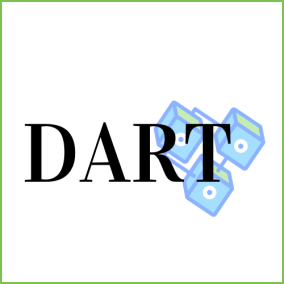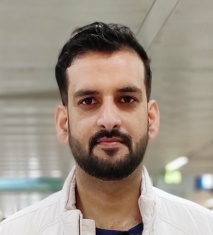
ABOUT THE PROJECT
DART: A Distributed-OrAcles Framework for PRivacy-Preserving Data Traceability
Blockchain technology, although in its growing phase, is envisioned to fundamentally change inter-networked systems. Although trust and security for on-chain data management has achieved significant improvements, research effort is still needed to integrate off-chain data in a scalable and reliable way. Together with off-chain data management comes the need to ensure content-providing users the required level of privacy, while at the same time providing end-users a significant trust level on the withdrawn data.
In this project, we propose a scalable distributed oracles system, in which off-chain data to be stored in Ontoblocks pass through a consensus process autonomously handled by the involved oracles. In particular, we propose to exploit a correlation model in order to enforce trust between oracles. Based on the proposed model, we also propose a data traceability framework, in which content to be inserted in the ONTOCHAIN comes together with oracle-measured contextual information. This provides the end user a reliable system, in which products or data can be traced back to their origin.

Motivation for the project:
As the ONTOCHAIN software echosystem’s main objective is the interoperability between different sectors, our proposal is a fundamental enabler. In fact, not only we propose an automated trust model for distributed oracles, but we also enforce data provenance mechanisms. The former framework (i.e., distributed oracles) allows to avoid human interaction for tasks such as recording of physical world data inside the blockchain. The latter framework (i.e., data provenance) instead allows to verify the authenticity of human-inserted information inside the blockchain, as well as assets traceability. We further stress the fact that, even though data provenance mechanisms will include information such as location in which data has been inserted, this will not harm users’ privacy or anonymity if required. This is due to the fact that certification is not based on the user identity, rather on contextual off-chain information. Furthermore, the proposed reward-based solution for distributed oracles can be extended to human users. In fact, the same mechanism can be exploited to reward users for good quality contribution, incentivizing non-malicious behavior in the network.
Generic use case description:
As an illustrative example, consider anonymous news sharing, where a user wants to share information without actually revealing her identity. The problem in this case is to both provide a way for the issuing user to share content without being identified, and to provide the end user (i.e., the one reading the news) a guarantee on the truthfulness of the news. The DART project provides means by which both of these problems can be addressed. The idea is that information reliability is not based on the issuer, but on the contextual information related to the news. Therefore, when a user is reporting a news, instead of relying on the credibility of the user itself, we propose to rely on the certification that the oracle is able to provide (e.g., reporting news from location x, certify it with oracle-measured GPS location). By means of our trust-enforced distributed oracle framework, we are able to guarantee that the off-chain related to the content is verified before being recorded into the blockchain. Furthermore, by exploiting the traceability of the information in the blockchain, the end user is able to verify the original source of the information. This allows for a privacy preserving data traceability framework.
Essential functionalities:
Essential functionalities provided by the DART project include:
- a trustworthy framework for off-chain data management. By deploying multiple oracles, while at the same time limiting the implementation cost, we propose to exploit the inherent correlation of off-chain data to provide a trust framework in which multiple oracles can agree on which data can be trusted and inserted in the blockchain.
- data traceability. By exploiting the reliability of off-chain data obtained with the previous framework, we propose a system in which user-generated data is certified by off-chain data provided by oracles. This approach, not only is able to certify data provenance, but can also be exploited to enforce anonymous trusted content sharing.
How these functionalities can be integrated within the software ecosystem:
The solutions proposed by the DART project are applicable to most of the use cases identified by the ONTOCHAIN project. In fact, the idea behind DART is not based on a specific use case, but rather covers all those scenarios in which off-chain data management is essential, as well where it is essential to guarantee trust on data to be inserted in the blockchain. Furthermore, with the DART project, we provide a framework in which data traceability can be enforced by exploiting the benefits coming from contextual off-chain data and the inherent traceability of the blockchain. This framework can hence be applied in all those scenarios in which the user needs to both verify data provenance and bemensured of the validity of the retrieved information.
Gap being addressed:
The DART project fills the gap given by the need to verify off-chain data before recording it into the blockchain. In fact, although oracles are designed to handle the recording of off-chain data into the blockchain, they are not designed to verify whether the measured data is reliable. This implies that a malicious user could be able to craft false data and insert it inside the blockchain. Due to the fact that changes inside the blockchain are irreversible, this implies that a falsified data is recorded inside the blockchain and will never leave it. The DART project provides a solution to this problem.
Another gap is given by the need for verifiable anonymous data. In fact, there is a need for information providers to keep their anonymity, and for the end user to verify the truthfulness of the available information. The DART project provides a solution for both parties, implementing a privacy preserving data traceability framework.
Expected benefits achieved with the novel technology building blocks:
After experimentation, a complete prototype will be ready to be applied to most of the identified application domains of the ONTOCHAIN ecosystem. In fact, trust mechanisms for distributed oracles are application-independent, as well as their use for data and information traceability. Same holds for the data traceability framework. The resulting prototype will be strengthened after experimentation by a comparison with other state of the art solutions, such that its novelty can be further assessed.
These solutions will also create industrial impact as, due to their generality, they will serve as enablers for different domain-specific applications. As for the ONTOCHAIN ecosystem, industry may benefit from automated distributed oracles in Industry 4.0, to ease trusted industrial automation. Data provenance mechanisms will also be of great value in industrial context, as it allows to reliably build a certification chain that will guarantee the final customer the required product quality.
Potential demonstration scenario:
In order to validate our proposal a set of real world experiments will be carried out. In particular, we plan to install a sensor network at the Human Inspired Technologies Research Center (HIT) premises, such that real world data can be measured. We plan to install 50 sensors from which we will derive a correlation model. This data will then be exploited to test our correlation-based oracles model. User-generated data will also be gathered on a voluntary basis. This data will be exploited to test the privacy preserving trusted content sharing. A suitable app will be designed, such that both data coming from oracles and user content are shared as a unicum on the blockchain. We envision being able to recruit 35 volunteers to test the app.
TEAM

Mauro Conti
Mauro Conti is Full Professor at the Università degli studi di Padova, Italy. He is also affiliated with TU Delft and University of Washington, Seattle. He obtained his Ph.D. from Sapienza University of Rome, Italy, in 2009.

Alessandro Brighente
Alessandro Brighente is a Postdoctoral Fellow at the SPRITZ Group of the Università degli studi di Padova. He obtained his Ph.D. from the Università degli studi di Padova, Italy, in 2021.

Gulshan Kumar
Gulshan Kumar is a postdoctoral researcher in SPRITZ Research Group, Università degli studi di Padova. He works as Associate professor at School of Computer Science and Engineering, Lovely Professional University, Phagwara, Punjab, India.

Rahul Saha
Rahul Saha is a postdoctoral researcher in SPRITZ Research Group, Università degli studi di Padova. He works as Associate professor at School of Computer Science and Engineering, Lovely Professional University, Phagwara, Punjab, India.
ENTITIES
Università degli Studi di Padova - Human Inspired Technologies Research Center
Human Inspired Technologies Research Center focuses on accomplishing knowledge and technological transfer in the interdisciplinary domain of the human interaction with technologies.


 This project has received funding from the European Union’s Horizon 2020 research and innovation programme under grant agreement No 957338
This project has received funding from the European Union’s Horizon 2020 research and innovation programme under grant agreement No 957338




